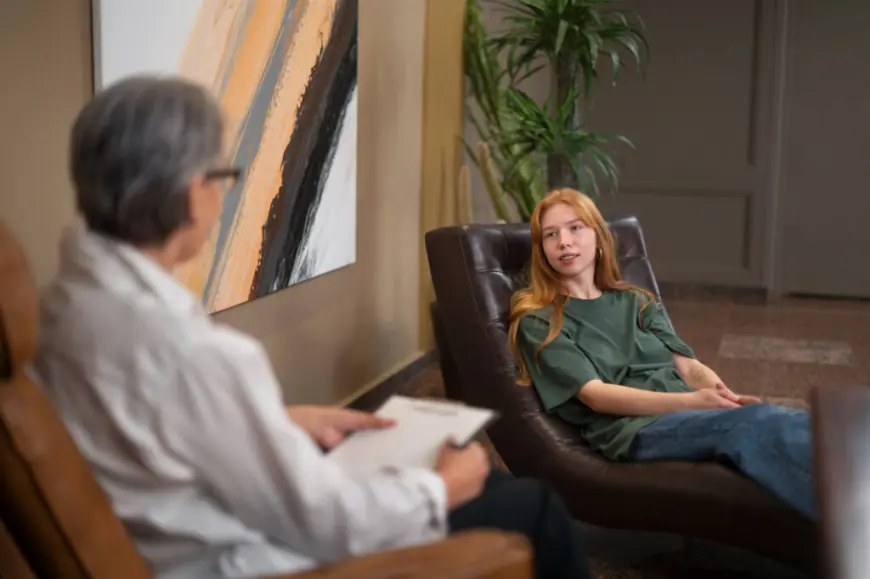Therapist in India: Navigating the Modern Mental Health Landscape with Ease
Discover how to find the ideal therapist in India, exploring both online and in-person options, tailored approaches, and expert guidance to support your mental health journey.

If you're searching for a therapist in India, you're not alone—and this is the perfect time to take that step. Whether you're drawn to online counseling or in-person support, finding the right fit can be transformative. The Center for Mental Health—a leading source for psychologists in India—makes this journey accessible and empathetic, offering both expert care and innovative delivery. In this blog, we'll explore what makes seeking a therapist in India effective and compassionate, how platforms like CMH are reshaping mental wellness, and how you can navigate the landscape confidently.
1. Why Seeking a Therapist in India Is More Accessible Than Ever
India’s mental health narrative is changing. With online psychologists becoming increasingly mainstream, online therapy offers accessibility, convenience, and privacy in ways that traditional therapy often couldn’t . Individuals now have the power to connect with skilled professionals through virtual sessions—no geographic constraints, fewer scheduling conflicts, and reduced stigma.
At the same time, face-to-face therapy continues to be vital, especially when tailored to regional languages and cultural needs. Whether online or offline, therapy in India is rapidly evolving to meet people where they are—emotionally and geographically .
2. The Dual Edge: Online vs. In-Person Therapy in India
Online Therapy
-
Effectiveness Parity: Studies have shown that virtual therapy can be just as effective as in-person sessions for many mental health concerns.
-
Convenience & Comfort: You can attend sessions from your home, removing travel hassles and preserving privacy.
-
Cultural Resonance: Many online platforms connect users with therapists fluent in regional languages and familiar with local cultural nuances .
In-Person Therapy
-
Deep Connection: Physical presence can foster stronger rapport, especially for complex or trauma-related cases.
-
Localized Approach: Centers like Pune’s branch of the Center for Mental Health provide in-person services tailored with thoughtful settings and specialized therapies .
-
Holistic Setting: A warm, private, and comfortable environment supports deeper emotional exploration.
3. Spotlight: Center for Mental Health (CMH) – Bridging Both Worlds
The Center for Mental Health is a standout destination for those seeking psychologists in India—both online and offline:
-
Comprehensive Services: From individual, couple, and family therapy to psycho-diagnostic assessments, psychotherapy, and queer-affirmative counseling .
-
Highly Skilled Team: Professionals trained at NIMHANS, Tata Institute of Social Sciences, Manipal, and Amity bring clinical excellence and empathy.
-
Inclusive Focus: Therapists such as Nupur Dhakephalkar (EMDR-trained, trauma-informed, queer-affirmative) and Arpita Misra (schema-focused, client-centered, queer-affirmative) provide expert, personalized care .
-
Pune-Based Services: The in-person center offers therapy in a comforting physical space using modalities like CBT, EMDR, schema therapy, art therapy, queer-affirmative therapy, mindfulness, and more.
-
Growth & Supervision: They offer one-on-one clinical supervision for budding therapists—supporting the development of future mental health professionals .
4. Understanding the Broader Mental Health Landscape in India
Despite these advances, India faces challenges:
-
Severe Manpower Shortage: With just 0.75 psychiatrists per 100,000 people—far below WHO’s recommended 1.7—mental health professionals are in short supply.
-
Professional Licensing Gaps: Titles like “psychotherapist” or “counselor” are not legally protected—meaning anyone can use them without RCI registration .
-
Wide Treatment Gap: Stigma, low awareness, and insufficient infrastructure continue to contribute to unmet mental health needs .
Yet, initiatives like accessible helplines and thematic programs are making a difference—especially in reaching underserved communities .
5. Smart Ways to Choose the Right Psychologist or Therapist in India
| Criteria | Why It Matters |
|---|---|
| RCI Registration | Ensures the therapist is qualified and professionally accountable . |
| Therapeutic Modality | Match therapy style (e.g. EMDR, CBT, schema) to your needs and preferences. |
| Accessibility Options | Decide whether online, in-person, or a hybrid works best for your schedule. |
| Cultural Fit | Therapy in your language or with cultural understanding is vital for comfort. |
| Initial Consultation | Use first sessions to gauge rapport, approach, and comfort. |
| Affiliations & Training | Look for therapists trained or associated with reputable institutions like NIMHANS or TISS . |
6. Embracing Your Mental Health Journey: First Steps
-
Recognize Need: Acknowledging the need for support—whether due to stress, anxiety, or life transitions—is empowering.
-
Decide Format: Pick between online convenience or in-person intimacy.
-
Research and Shortlist: Look into platforms like the Center for Mental Health or local trusted professionals in your region.
-
Check Credentials: Ensure therapists are validated by RCI or listed by reputable centers.
-
Book an Intro Session: This helps assess comfort, alignment, and approach.
-
Commit to the Process: Therapy is a collaboration that grows richer with openness, effort, and consistency.
Final Thoughts
Finding a therapist in India—whether through digital platforms or in a serene in-person space—is now more feasible and meaningful than ever. Organizations like the Center for Mental Health are at the forefront, blending clinical credibility with inclusivity, accessibility, and warmth.
The landscape still needs growth—especially in terms of manpower and regulatory clarity—but the momentum toward widespread mental wellness is undeniable. Whether you're exploring therapy as a proactive well-being measure or seeking support during emotional challenges, your journey deserves compassion, professionalism, and hope.
What's Your Reaction?
 Like
0
Like
0
 Dislike
0
Dislike
0
 Love
0
Love
0
 Funny
0
Funny
0
 Angry
0
Angry
0
 Sad
0
Sad
0
 Wow
0
Wow
0
















































